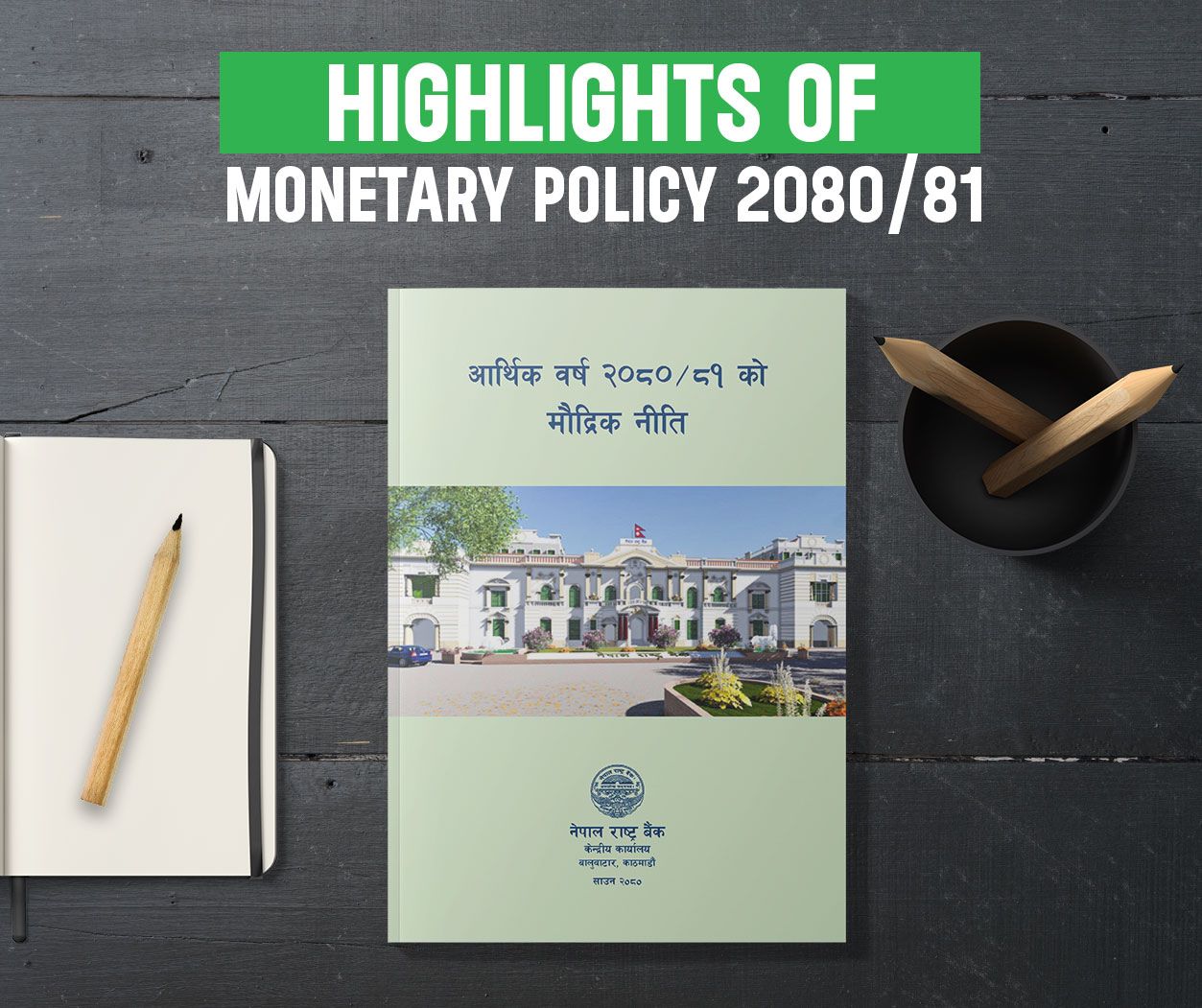The Economic Influence of Tourism in Nepal
The Economic Influence of Tourism in Nepal
Macro Insights

Ideapreneur Nepal
Created on :
2024-01-17
Download our app for a smooth experience
Total Views:
21 views

Nepal is a diverse and a culturally rich country nestled in the heart of the Himalayas, making it a unique and captivating tourism destination. Nepal has a rich cultural and historical heritage, with ancient temples, monasteries, and palaces scattered across the country. The Kathmandu Valley alone is home to seven UNESCO World Heritage Sites, showcasing intricate architecture and centuries-old art.
As the birthplace of Lord Buddha, Lumbini in Nepal attracts Buddhist pilgrims from around the globe. The region features numerous monasteries, stupas, and meditation centers. Nepal's national parks and wildlife reserves, such as Chitwan National Park and Bardia National Park, offer opportunities to spot diverse wildlife, including Bengal tigers, one-horned rhinoceroses, elephants, and a variety of bird species.
Home to eight of the world's 14 highest peaks, including Mount Everest, Nepal offers breathtaking landscapes, snow-capped mountains, and serene valleys. The Annapurna and Langtang regions also provide stunning trekking routes. Trekking, mountaineering, and hiking are popular activities, with well-known treks like the Everest Base Camp trek and the Annapurna Circuit attracting visitors from around the world. The country offers various adventure sports such as white-water rafting, paragliding, zip-lining, and bungee jumping.
Nepal is generally an affordable destination, attracting budget travelers as well as those seeking luxury experiences. Accommodations, food, and transportation are often reasonably priced. Nepal's unique blend of natural beauty, cultural heritage, and adventure opportunities make it a compelling destination for travelers seeking an authentic and enriching experience.
Tourism Industry and Its Impacts in the Economy
Tourism is a potential source of economic growth in many countries. It can be a tool for increasing export revenue, generating employment opportunities, enlarging consumer markets and diversifying economy. Furthermore, it also contributes to government revenue. It has a spin-off effect on all sectors of the economy . Neglecting the period of COVID-19 pandemic, as it is an exceptional period, tourism is one of the fastest growing sectors of the global economy. Increased income and air connectivity are contributing to expanding global tourism.
With the increase in the role of tourism in the global economy, empirical studies on the impact of tourism on growth, employment and foreign exchange earnings are also increasing. Due to this reason, the development of the tourism industry is in the priority of the countries.
In developed countries, tourism is proved as vital component of their economy and wellbeing whereas developing countries also became successful to improve their economic profile through the expansion of their tourism industry. For many countries, which have lower competitiveness on export of other goods and services, tourism provides opportunities to reduce their trade deficit.
Tourism and it’s Contribution to the Economy of Nepal
Tourism can play a significant role in a country's economy, and Nepal is no exception. Tourism is a major source of foreign exchange earnings for Nepal. Revenue generated from international tourists, including expenditures on accommodation, food, transportation, and other services, contributes to the country's balance of payments.
Foreign exchange earnings from tourism as a percentage of GDP for Nepal for different years has been presented in the graph below:
Source: Nepal Rastra bank and World bank data
Tourism has a significant impact on Nepal's economy, contributing to various aspects of the country's financial well-being. Other positive impacts it has created are:
Employment Generation
Tourism is a major source of employment in Nepal. The industry creates jobs directly in areas such as hospitality, travel, and guiding, as well as indirectly in sectors like agriculture, transportation, and handicrafts. This is particularly significant in a country with diverse rural areas.
Revenue for Local Communities
Tourism supports local economies, especially in rural areas and smaller communities. Local businesses, homestays, and community-based tourism initiatives benefit from the influx of visitors, providing income and opportunities for sustainable development.
Promotion of Handicrafts and Local Products
The tourism industry helps in the promotion and sale of local crafts, textiles, and traditional products. This provides income to local artisans and entrepreneurs, contributing to the economic growth of these communities.
Diversification of the Economy
Tourism contributes to the diversification of Nepal's economy. By promoting various forms of tourism, such as adventure tourism, cultural tourism, and eco-tourism, the country reduces dependence on a single industry and strengthens its economic resilience.
Global Connectivity and Image Building
Tourism enhances Nepal's global connectivity and contributes to the country's positive image. Positive experiences shared by tourists can attract more visitors and investments, fostering international goodwill.
Conclusion
Studies found that total volume of trade has a positive and significant effect on economic growth in the short-run whereas foreign aid, total volume of trade and ratio of government consumption expenditure to GDP have positive and significant effect on economic growth in the long-run. Despite the enormous benefits that tourism has on the economy, it has been seen that over the years daily spending per tourist has been low in Nepal.
Major problems of Nepalese tourism are low level of tourist arrival and low daily spending per tourist. These are caused by the low level of tourism competitiveness of Nepal. In the absence of breakthroughs in terms of tourist arrival and their spending, there will be an insignificant role of tourism on economic growth of Nepal.
Using resources in the tourism sector to maintain the existing situation only will not create significantly productive results in the country. It will have an opportunity cost to the country. In such a situation, a serious question arises on whether tourism can be a foundation for economic transformation of the country.
Tags:
Tourism Sector
Economy of Nepal
Tourism Sector
Economy of Nepal
Leave a comment on this post
Comments
Uday Xetri
Thans

Related Article

Economics
Reading time : 6 mins
The Endless Dance of Debt: Understanding the Dark Side of Finance

Economics
Reading time : 14 mins
Analyzing Economic Indicators: Are We Headed for a Recession?

Economics
Reading time : 10 mins
Inflation: Understanding the Basics

Economics
Reading time : 7 mins
How the Insurance Sector in Nepal is Evolving?

Economics
Reading time : 6 mins
Why Can the Government not Print More Money and Make Everyone Rich?

Economics
Reading time : 7 mins
India's Rice Export Ban and the Potential Global Threat

Economics
Reading time : 13 mins
Are We Ready for a Coin-Less Economy?

Economics
Reading time : 6 mins
Cement Industry in Nepal: An Overview

Economics
Reading time : 12 mins
Major Highlights of Monetary Policy 2080/81

